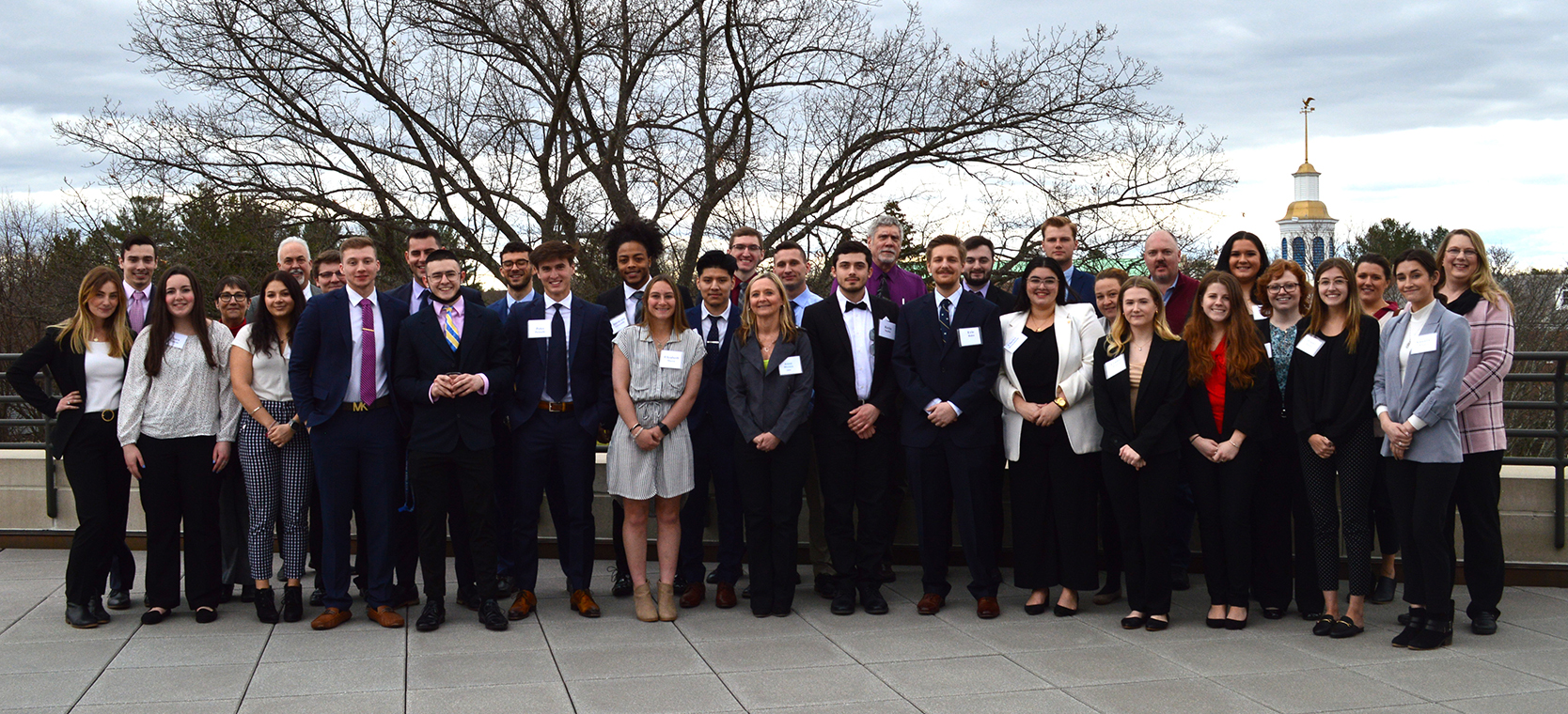Paying for Life by Kaley Lentini L'14
Published March 2019 for Prima Facie, the newsletter of the Law Alumni Association
“Don’t do the crime if you can’t do the time.” Undoubtedly, we have all heard this expression at some point, whether as a parental retort to whining about being grounded or as a flippant response to learning about a harsh sentence imposed on someone convicted of a crime. But what does this expression really mean?
According to The Farlex Idioms & Slang Dictionary, the expression advises you to “not misbehave if you are unprepared or unwilling to accept the punishment.” Popularized in the late 1970s as a lyric in the detective television series Baretta theme song, the expression means much more for the 2.3 million people incarcerated in our country, over 650,000 people returning from prison to their communities each year, and the one in three Americans living with a criminal record.
Returning citizens and people living with a criminal record face over 45,000 state and federal laws and regulations that affect where they can live, work, and get an education; limit their access to voting, credit, insurance, economic development programs, and public programs and services; and hurt their ability to reunify with their families, start businesses, and even volunteer in their communities. These sanctions and disqualifications that attach to a criminal conviction, otherwise known as “collateral consequences,” leave people paying for their actions long after they have paid their debt to society. In response to the 2007 Court Security Improvement Act, which required the National Institute for Justice to complete a survey of collateral consequences, the American Bar Association began identifying these statutes and regulations that impose additional penalties beyond incarceration in 2012. The outcome of the ABA’s work is the National Inventory of the Collateral Consequences of Conviction, a searchable database of collateral consequences across the country.
For an increasingly large number of people, the prohibitions found in this database mean that they can never get ahead. They are continually forced to disclose their past and are judged and discriminated against because of their criminal record. Laws and regulations that impose collateral consequences often do not take into consideration the length of time since a criminal conviction, nor do they take into account any steps someone who was convicted of a crime has taken since then to better themselves and their community. For example, a person who has been convicted of a crime at any time, no matter how long ago, cannot live in public housing in many states. A person who is convicted of a crime involving drugs will have a very difficult time becoming a licensed substance abuse counselor in some states, despite the fact that they may not have used any substances for decades. Laws and regulations imposing additional punishments generally do not consider the circumstances surrounding a conviction, including whether the defendant was a juvenile at the time or whether the crime was committed in self-defense.
While some consequences, such as not allowing people who have a child or elder abuse conviction to work in a childcare facility or retirement home, are imposed for legitimate public safety reasons, many collateral consequences seem to not serve a legitimate public interest at all. Often, there is not a connection between a particular conviction and the prohibition imposed. In some states, a person with a criminal record cannot qualify for food stamps, punishing them for living in poverty and hurting their family. Many states allow employers to deny any type of employment to prospective employees solely because of a criminal conviction, no matter the type of crime or if it relates to the position. Others allow insurance companies to deny life insurance to a person who was convicted of a felony, making it more difficult for someone to protect their family. Additionally, many laws and regulations apply equally to people who have been convicted of misdemeanors and those convicted of felonies. No matter the crime or sentence, they are, in effect, sentenced to a life of discrimination due to laws and regulations that often seem arbitrary.
The ABA found that 62 percent of the collateral consequences in the United State relate to employment. This could explain why, even a year after their release, 60 percent of formerly incarcerated people are unemployed. Because of legal barriers to employment and persistent stereotypes, the unemployment rate among all formerly incarcerated people is 27 percent, higher than levels of unemployment during the Great Depression. Despite the discrimination faced by prospective employees with criminal records, the data shows that employers see benefits when employing people in this population. In fact, the United States military has found that members who have a felony on their criminal record are actually more likely to be promoted to sergeant than those with no conviction history, irrespective of other factors, including educational background. Our country as a whole would also benefit if employment discrimination based on a criminal record was prohibited. Economists estimate that the U.S. gross national product is reduced between $78 billion and $87 billion because so many formerly incarcerated job seekers are kept out of the workforce.
The difficulty of earning a living, as well as the difficulty of finding housing, getting credit, and earning an education, often leads to recidivism for people who yearn to turn their lives around. The more opportunities that are foreclosed to people living with a criminal record, the higher the likelihood that they will become involved in the justice system again. If more people have an opportunity to support themselves and their families, everyone will be safer. When 95 percent of people who are incarcerated will be released at some point, it is important that they are met with resources to keep them from being caught up in cycle of crime, rather than additional punishments.
In New England alone, people living with a criminal record face over 3,700 collateral consequences. While there is a movement to reduce that number to give people the opportunity to contribute to society and build successful and fulfilling lives, the wins in this arena generally are piecemeal, prohibiting discrimination based on a criminal record in employment, housing, credit, and other areas one at a time. No state has comprehensively outlawed discrimination based on a person’s criminal record. But that is just what one New England state has set out to do.
The state of Connecticut is taking the lead to reduce the collateral consequences faced by people living with a criminal record. During its 2019 legislative session, the Connecticut General Assembly is considering a bill to expand the scope of the state’s anti-discrimination laws to prohibit discrimination on the basis of a criminal record in employment, housing, public education and accommodations, insurance, credit transactions, public programs and services, and economic development programs. People returning home in Connecticut after incarceration face more than 600 legal barriers to meeting their basic needs, supporting themselves and their families, and reintegrating into society. In an effort to reduce the collateral consequences that are imposed on people who are living with a criminal record, Connecticut’s bill would make the state safer and stronger by giving people a fair chance to rebuild their lives and contribute to society without facing discrimination based solely on their criminal record.
The concept is popular in the state. In fact, a 2018 public opinion poll of registered Connecticut voters found that 74 percent support the legislature passing a law that prohibits formerly incarcerated people from being discriminated against due to their criminal record when it comes to things like housing, employment, education, and insurance. Many organizations in the state, including the American Civil Liberties Union of Connecticut, Connecticut Juvenile Justice Alliance, and Women Against Mass Incarceration, as well as the Connecticut State Child Advocate and faith leaders in Connecticut, also support the measure. Connecticut would be the first state to pass such a bill. Even if people living with a criminal record in Connecticut can no longer be perpetually punished for their pasts, though, collateral consequences will continue to haunt people across the nation who have already paid their debt to society.
In its 2015 National Summit on Collateral Consequences report, the ABA Criminal Justice Section stated that “[i]t is up to the criminal justice community to help ensure that the criminal justice system itself does not perpetuate recidivism via arbitrary and draconian sentencing and collateral consequences.” As attorneys, many of us are an integral part of that criminal justice system. Maybe we represent people charged with committing crimes, prosecute criminal defendants, or make judicial determinations about the guilt or innocence of people. But the fact that one in three American adults has been arrested by age 23 and one-third of our country is living with a criminal record means that, statistically, we also each have neighbors, coworkers, fellow congregants, friends, and maybe even family members who are saddled with additional punishments attached to criminal convictions. As the fight against unjust collateral consequences continues across the country, attorneys should use our position in the justice system and society to stand up for fairness and equality for those whose pasts are held against them for the foreseeable future. Because after you have been convicted of a crime and done your time, you should have the right to live.
Kaley Lentini L’14 serves on the Western New England University School of Law Alumni Association and is legislative counsel for the American Civil Liberties Union of Connecticut, which recently launched its Smart Justice campaign to advocate for criminal justice reform in the state.





